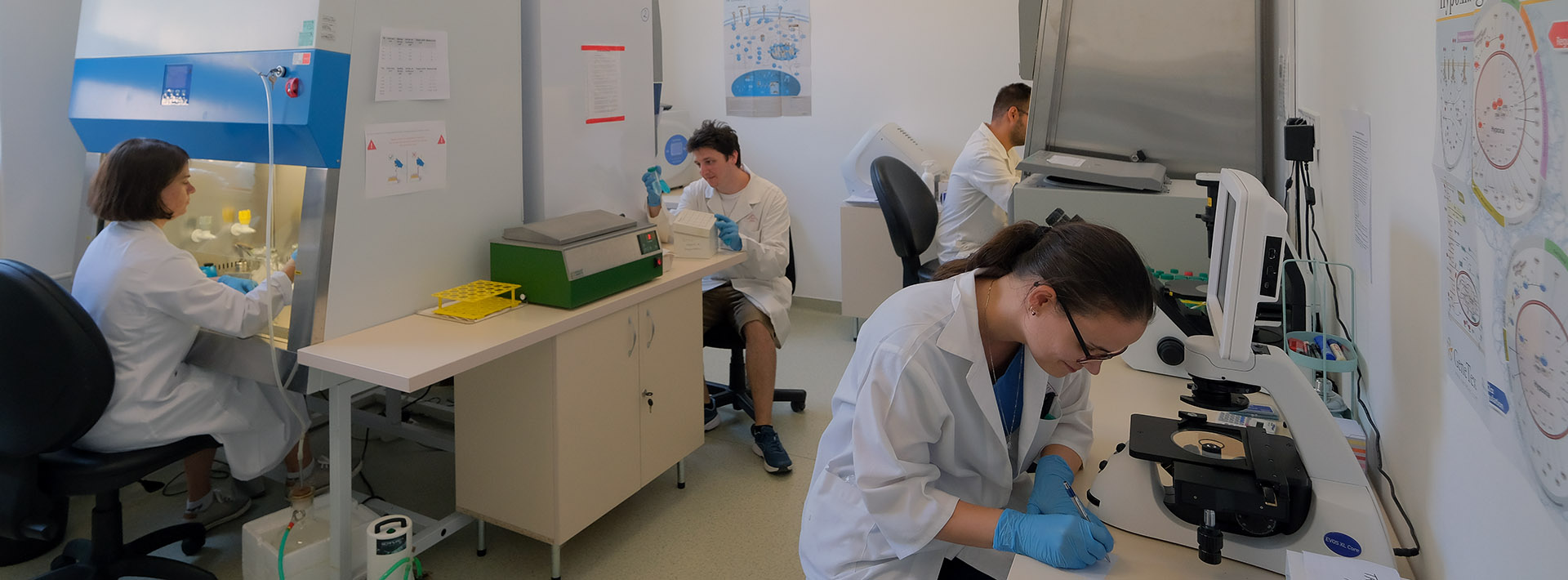Data
Official data in SubjectManager for the following academic year: 2024-2025
Course director
-
Debreceni Balázs
associate professor,
Department of Biochemistry and Medical Chemistry -
Number of hours/semester
lectures: 28 hours
practices: 14 hours
seminars: 0 hours
total of: 42 hours
Subject data
- Code of subject: OSA-BEF-T
- 3 kredit
- Dentistry
- Basic modul
- spring
-
Course headcount limitations
min. 5 – max. 96
Topic
Introduction to Biochemistry includes the topics of organic and bio-organic chemistry along with basic biochemistry which are necessary for dentistry students. It deals with the structure, chemistry, and cellular metabolism of essential biomolecules like proteins, carbohydrates and lipids. The purpose of practices is to consider the chemistry of bio-compounds. Curriculum of Introduction to Biochemistry contains the basic knowledge that is necessary to understand cell biology, physiology, pharmacology and biochemistry.
Lectures
- 28. Proteins III. Regulation - Takátsy Anikó
- 27. Proteins II. Translation - Takátsy Anikó
- 26. Proteins I. Translation - Takátsy Anikó
- 25. RNA II. Post-transcriptional changes - Veres Balázs
- 24. RNA I. Transcription - Veres Balázs
- 23. DNA II. Corrective mechanisms - Veres Balázs
- 22. DNA I. Replication - Nagy Veronika
- 21. Nucleotide coenzymes, bioenergetics - Bognár Zita
- 20. Nucleic acids - Nagy Veronika
- 19. Nucleosides, nucleotides - Bóna Ágnes
- 18. Biological membranes and transport processes II. - Takátsy Anikó
- 17. Biological membranes and transport processes I. - Takátsy Anikó
- 16. Regulation and inhibition of enzyme activity, isoenzymes - Berente Zoltán
- 14. Myosin, Ig, scaffold - Takátsy Anikó
- 15. Basics of enzyme kinetics - Berente Zoltán
- 13. Hemoglobin, oxygen transport - Andreidesz Kitti
- 12. Structure of proteins - Berente Zoltán
- 11. Amino acids, peptides - Berente Zoltán
- 10. Di-, oligo- and polysaccharides are medically important - Takátsy Anikó
- 9. Reactions of monosaccharides - Nagy Veronika
- 7. Steroids - Balogi Zsolt
- 8. Structure of monosaccharides - Nagy Veronika
- 6. Prostaglandins, terpenoids - Nagy Veronika
- 5. Simple and complex lipids - Nagy Veronika
- 3. Heterocycles II. - Gulyás Gergely
- 4. Alkaloids - Nagy Veronika
- 1. Introduction - Bognár Zita
- 2. Carbonic acid derivatives, Heterocycles I. - Gulyás Gergely
Practices
- 14. Consultation
- 13. Basics of molecular biology II.
- 12. Basics of molecular biology I.
- 11. Basics of molecular biology I.
- 9. Coenzymes - practice
- 10. Coenzymes - practice
- 8. Enzymes, metabolism I. - practice
- 7. Enzymes, metabolism I. - practice
- 6.
Organic Chemistry - practice
- 5.
Organic Chemistry - practice
- 4.
Stereochemistry, molecule model exercises, -practice
- 3.
Stereochemistry, molecule model exercises, -practice
- 2.
Basic reactions in organic chemistry, high-energy bonds
- 1.
Basic reactions in organic chemistry, high-energy bonds
Seminars
Reading material
Obligatory literature
http://aok.pte.hu/en/egyseg/oktatasianyagok/20
Literature developed by the Department
Nagy V., Agócs A. :Introduction to biochemistry lab manual 2017/18http://aok.pte.hu/en/egyseg/oktatasianyagok/20
Notes
Nagy V., Agócs A. :Introduction to biochemistry lab manual 2017/18http://aok.pte.hu/en/egyseg/oktatasianyagok/20
Recommended literature
Nelson, Cox: Lehninger Principles of Biochemistry, 5th ed., W.H. Freeman, 2008
http://bcs.whfreeman.com/lehninger5e
Berg, Tymoczko, Stryer: Biochemistry, 7th ed.
http://bcs.whfreeman.com/berg7e
Conditions for acceptance of the semester
none
Mid-term exams
There are lab practices at every EVEN NUMBERED EDUCATIONAL weeks (2-4-6-8-10-12-14). There are short tests from week 4 till 14. The lab is beginning with a short test (time is 6 minutes; 6 occasions; max. 6 exampoints). Requirement for acceptance is writing 5 test out of 6 possibility.
There is no possibilities to write a short test if delaying is over 5 minutes. No more than 10 minutes delay is accepted, over of it, it is an absence. No more than 1 absence is allowed from the 7 lab occasions (15%).
It is obligatory to write lab-notes. Result of the short test is acknowledged only if the lab-notes of the practice is accepted by the lab instructor. The exam is based on the topic of the lectures and labs. (http://aok.pte.hu/en/egyseg/oktatasianyagok/2024)
Making up for missed classes
There is no possibility to make up of the lab practices.
Exam topics/questions
Written exam, Questions 1–10: MRT questions, maximum 30 points, must be obtained at least 21 points. If <21 points is obtained: failed, irrespectively of the remaining part of the test. Questions 11–: 70 points; Total: 100 points (+Laboratory test points: max. 6)
Grades:
0–60: 1
61–70: 2
71–80: 3
81–90: 4
91– : 5
http://aok.pte.hu/en/egyseg/oktatasianyagok/2024
Examiners
- Andreidesz Kitti
- Bognár Zita
- Bóna Ágnes
- Debreceni Balázs
Instructor / tutor of practices and seminars
- Andreidesz Kitti
- Bognár Zita
- Jakus Péter Balázs
- Kiss Bence
